May is Mental Health Awareness Month. If you need help, contact Colorado Crisis Services by texting ‘TALK’ to 38255 or calling 1-844-493-8255.
by the Pediatric Behavioral Health Team at Barbara Davis Center: Shideh Majidi, MD; Ellen Fay-Itzkowitz, LCSW; Katherine Josey, LCSW; Jennifer Tilden, LCSW
Type 1 Diabetes is a constant, 24/7 condition, that can result in variety of feelings for those with diabetes and their caregivers. Individuals will experience feelings of anger, sadness, worry, frustration and can feel overwhelmed in the days, weeks, months and years following a T1D diagnosis. In fact, those who have T1D are at higher risk of mental health issues, including depression and anxiety. You are not alone when you have these feelings, and the Barbara Davis Center for Diabetes is prepared to help. Some mental health conditions that are seen in T1D include:

Depression
Depression is seen in 15-20% of youth with T1D, about double the rate of those without diabetes. Depression can include feelings of sadness, increased irritability, decreased energy or desire to do anything, difficulty with eating and/or sleeping, and difficulty with concentration. It is not uncommon to have feelings like this after a diabetes diagnosis, but if the feelings do not resolve after a few months, or if they present later on, you may have depression. Depression is treated similarly in those with type 1 diabetes as those without type 1 diabetes. Barbara Davis Center Pediatric clinic conducts annual screening for depression and suicidal ideation, as recommended by the American Diabetes Association. Your behavioral health team at Barbara Davis Center can help with identifying these symptoms and linking you with the right people to see for further evaluation and treatment.
Suicidal Ideation
Thoughts of dying or of killing oneself is seen in those with type 1 diabetes at similar or slightly increased rates compared to those without type 1 diabetes. It is important to recognize these thoughts and seek out help. If you or someone you know has thoughts of suicide, contact the Suicide Prevention Help Line at 1-80-273-8255. If urgent concern for suicide arises, call 911 or go the nearest Emergency Room.
Eating Disorders
Having type 1 diabetes means you have to think about food more often that you normally would. Although T1D management has advanced, giving individuals with T1D a little more control over what they eat and when they eat it, individuals with T1D still have to eat at times when they are not hungry (to treat lows) and sometimes they are deprived from eating when they are hungry (like when blood glucose levels are elevated and parents tell them to wait or make a different, lower carb choice). Feelings related to body weight and shape are complex too, especially during puberty. These complex food, insulin, and body issues can lead to eating disorders including anorexia, bulimia, or a diabetes-specific eating disorder referred to as “diabulimia.” Diabulimia is when an individual decreases or omits necessary insulin, ultimately leading to unhealthy weight loss. This is a dangerous behavior and if you, a family member or a friend are concerned they may be struggling with an eating disorder, please do not be afraid to ask your team at the BDC for help.
Fear of Hypoglycemia
Some youth and caregivers worry about going low. Youth often worry about going low at school or in front of others and drawing attention to themselves, or going low somewhere they cannot treat the low. Caregivers often worry about their kid’s having lows overnight or at others times when no one is around who can help. Some concern about lows is appropriate, but sometimes the concern can lead to a level of anxiety that affects normal life or can lead to purposefully maintaining high blood sugars in order to prevent going low. If this sounds familiar, the team at Barbara Davis Center can help work through fear of hypoglycemia or identify the right people to see for further evaluation and treatment.
Needle-related Anxiety
It is not uncommon for youth or caregivers to have a fear of needles, whether it is injections, finger pokes, sensors or pump set changes. Unfortunately, diabetes requires the use of needles for blood glucose monitoring and insulin administration. It is important to recognize fear of needles and address it with your diabetes team, as the fear can continue to increase the longer it goes unrecognized and habits or rituals related to injections can develop that are difficult to reverse (such as using the same sites repeatedly causing hypertrophy, or avoiding injections completely). The behavioral health team at Barbara Davis Center have tools and tips to help work through needle related anxiety.
Just like diabetes, mental health issues are genetically-based conditions that require evaluation and treatment by a health care professional. With any of the above mental health issues, treatments are available and the behavioral health team at Barbara Davis Center is here to help recognize mental health issues and provide appropriate referrals to therapists and counselors who can work with us to help with treatment.
Do not hesitate to bring up concerns you have at your next visit or call and ask to speak directly with one of our behavioral health specialists at (303) 724-2323.






